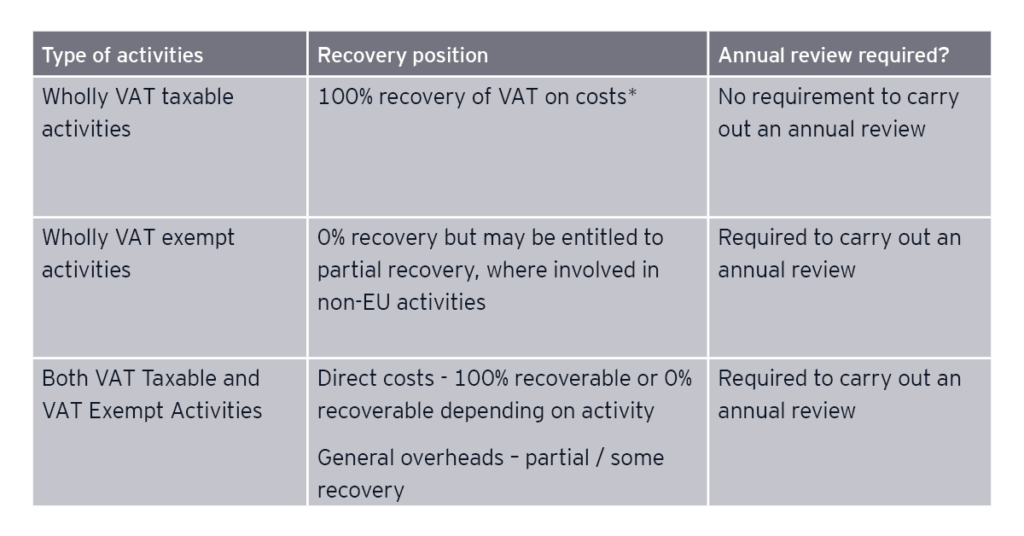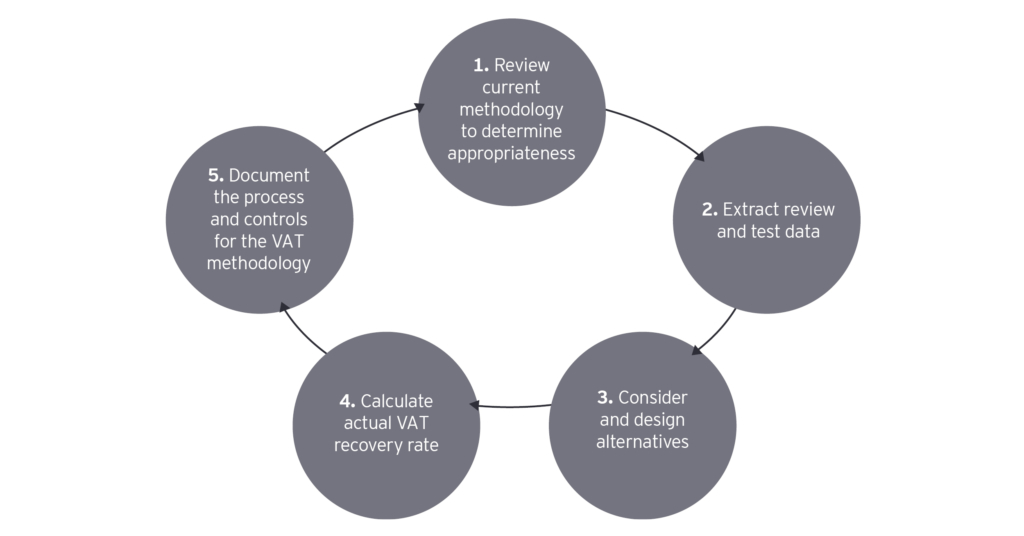If your business is involved in VAT exempt and VAT taxable activities and consequently is only entitled to partial VAT recovery, it’s time to carry out the mandatory annual VAT recovery rate review for 2019 if your business has a 31 December accounting year-end.
The adjustment should be included in the May/June 2020 VAT return, which must be filed by 23 July, otherwise statutory interest applies.
What is a VAT recovery rate?
A VAT recovery rate is the portion of VAT incurred that an entity is entitled to deduct. Different entities are entitled to deduct different amounts of VAT depending on the activities they are engaged in – the following is a useful summary:

In general, a turnover based methodology must be applied to calculate a partial VAT recovery rate. This involves a business involved in both taxable and exempt activities calculating its turnover from taxable activities as a percentage of its total turnover. The resulting percentage is the entity’s VAT recovery rate. If turnover does not correctly reflect either how your business uses overhead costs or the range of activities and supplies undertaken by your business, you can consider using other methodologies to calculate a partial VAT recover rate, such as staff usage, number of transactions, floor area, etc.
Issues to consider this year
With the continued economic disruption resulting from COVID-19 and cashflow now king, it might be a good opportunity to (i) revisit your current VAT recovery rate methodology to ensure it is still “fit for purpose” and reflective of your current business activities and (ii) see if there is any potential to increase the rate which could lead to a cashflow injection. If your group includes a branch structure you may also need to consider the practical implications of the Morgan Stanley (C-165/17) CJEU case which was released last year but which is only impacting VAT recovery rate adjustment calculations now.
EY’s approach to VAT recovery rate reviews
Our dedicated EY Financial Services VAT team has a huge amount of experience in advising financial services companies on their VAT recovery methodologies, and over the years we have developed and fine-tuned our approach so as to ensure minimal disruption to your business but at the same time maximizing VAT you are entitled to recover. Our approach involves a number of key steps (some of which or all may be required depending on your set-up):

If required, we can also assist and prepare submissions to Revenue if your business would like its VAT recovery rate methodology approved or if a new methodology results in a large positive VAT adjustment.
If it is:
then EY would be delighted to talk to you about how best to approach this and what opportunities there are for your business. For additional information, please contact any of our specialist FS VAT team (contact details below) or your usual EY Tax contact:
Eamonn McCallion eamonn.mccallion@ie.ey.com +353 1 221 1648
Brian Keenan brian.keenan@ie.ey.com +353 1 221 2487
Aideen Farrell aideen.farrell@ie.ey.com +353 6 144 9896
Karl Smyth karl.smyth@ie.ey.com +353 1 221 1790